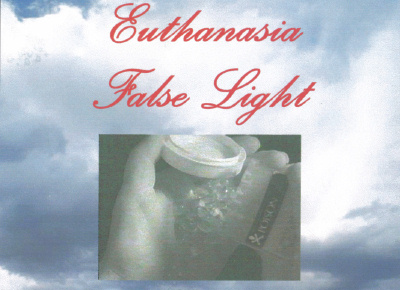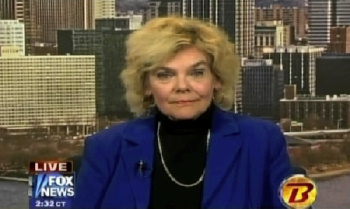What is the Protective Medical Decisions Document (PMDD)?
The PMDD is a protective Durable Power of Attorney for Health Care which is available from the Patients Rights Council. It is a document in which you name someone you trust (a family member or a close friend) to make health care decisions for you if you are ever permanently or temporarily unable to make such decisions for yourself.
What makes a PMDD necessary?
The following are some of the reasons that a PMDD is necessary:
1. Federal regulations require every hospital and health program that receives any Medicare or Medicaid funds to inform you, upon admission, of your rights regarding an advance directive. As a result, many facilities are giving patients a Living Will or Durable Power of Attorney to sign at the time of admission — when you’re naturally under stress and you’re filling out other paperwork.
2. Many hospitals are instituting “futile care” guidelines which may preclude the wishes of a patient who is unable to communicate. The PMDD specifically states that the meanings of “beneficial” and “appropriate” care are to be left to the agent who knows the values and wishes of the signer.
3. An effort is underway across the country to add euthanasia and assisted suicide to end of life options. The PMDD specifically prohibits euthanasia and assisted suicide.
4. Previously, family members were automatically considered the decision makers for a loved one. This is rapidly changing. Unless you have named someone as your agent to make decisions for you if you can’t give informed consent, a health care provider or court appointed guardian who doesn’t know your values and wishes may make critical decisions for you.
5. Ever since the federal Health Insurance Portability and Accountability Act (HIPAA) went into effect, some health care facilities have refused to provide information to anyone – even family members – about a hospitalized adult unless the patient has given written consent. The PMDD gives your agent the authority to obtain necessary information in the event that you are unable to give written consent at the time of hospitalization.
Taking the time now to sign a PMDD will assure you that you have carefully chosen the family member or friend who will protect your best interests if you can’t speak for yourself.
Who should have a PMDD?
It’s a good idea for every person who is 18 years old or older to have a PMDD. Many people assume that such a document is only necessary for the elderly or for the seriously ill, but people of any age or health condition could be in an accident after which they could be temporarily or permanently unable to make their own health care decisions.
How does the PMDD differ from a “Living Will”?
The PMDD is a Durable Power of Attorney for Health Care. A Living Will is a document, often called a “declaration” or a “directive,” in which the signer gives power and authority to an “attending physician” to withhold or withdraw medical interventions under certain circumstances. Because the “attending physician” may be a total stranger who is completely unfamiliar with the signer’s values and wishes, terms in the document may be interpreted by the physician in a manner that was not intended by the signer. Also, with the Living Will, family members and others — who are familiar with the signer’s values and wishes — have no legal standing to interpret the meaning of the directive.
Are there any limitations on my agent’s authority?
Yes, the PMDD limits your agent’s authority in one specific way. It makes it clear that your agent does not have the authority to approve the direct and intentional ending of your life.
For example, your agent may not authorize that you be given a lethal injection or an intentional lethal drug overdose. Further, your agent may not direct that you be denied food or fluids for the purpose of causing your death by starvation or dehydration.
This limitation not only protects you but also protects your agent from being subjected to pressure to authorize such actions or omissions.
If I’d like to give my agent other directions or express other special provisions, should I add these in writing to my PMDD?
Although you may legally add other provisions in writing, you are advised not to do so.
The “Statement of Special Provisions, Directions and Limitations” found in the PMDD lists those areas where specific language is necessary in the current medical climate.
For example, some health providers have taken it upon themselves to put DNR orders in place without the patient’s or agent’s authorization. Similarly, some health providers, ethics committees and health facilities are deciding what is “appropriate” or “beneficial” based on quality-of-life decisions that may be at variance with a patient’s values. Thus, the PMDD makes it clear that DNR orders and decisions about what is “appropriate” or “beneficial” are made only by the agent (if the PMDD signer is not able to do so).
Since it is not possible to predict all circumstances that may be faced in the future and it is not feasible to cover all possible interventions, adding specific written directions may severely limit the discretion and flexibility that your agent needs and may restrict your agent’s authority in a way you didn’t intend. In addition, if you add specific written directions you won’t be able to alter them through discussions between you and your agent. You would have to execute an entirely new document.
Instead of including any additional provisions or directions in writing, discuss them in detail with your agent both when you sign your PMDD and after periodic review of your document.
Who may serve as my agent?
It is important to select your agent carefully. Although an agent is also called an attorney-in-fact, that person need not be an attorney.
You may wish to select a spouse, other family member or close friend as your agent. Your agent should be an adult who shares your values and whom you trust to make decisions on your behalf. He/she also should be a person who will be comfortable asserting your rights.
Do I need more than one agent?
You are not required to name more than one agent but it is a good idea to name one or two alternates so that, if your agent is not available or is incapacitated, an alternate may act on your behalf. Alternates should be selected with the same degree of care as your primary agent.
How many sets of PMDD documents should I sign?
You should give a completed, witnessed and signed PMDD to your agent and to your alternate agent(s) since they would need it to prove that they have the authority to make decisions for you.
You may also wish to make photocopies of the signed, witnessed document for your own records and for a friend, neighbor or health care provider so that they could easily contact your agent in the event of an emergency.
(Do not keep your PMDD in a safe deposit box or any other place that is inaccessible.)
Is the PMDD valid in every state?
The Multi-State version of the PMDD conforms with the laws of most states. Some states, however, have specific statutory requirements for a durable power of attorney for health care. For those states, the PRC distributes PMDDs specifically drafted to meet the state’s technical requirements. Those states include: AK, AL, CA, CT, DE, FL, HI, IN, KY, MD, MI, MN, MO, NC, ND, NE, NH, NV, NY, OH, OK, OR, SC, TX, VT, WV and WI.
If I have signed a PMDD in one state and move to a state that has different statutory requirements, do I need to sign a new PMDD?
No. If your PMDD was valid in the state where you signed it, it will be honored in another state.
How can I get a PMDD?
PMDD packets are available from the PRC. Each packet contains a question and answer sheet, a checklist. three PMDD documents and a Protective Identification Card.
To obtain a PMDD packet, phone the PRC (800-958-5678 or 740-282-3810) between 8:30am and 4:30pm (eastern time).
Be sure to designate which version of the PMDD (Multi-state or AK, AL, CA, CT, DE, FL, HI, IN, KY, MD, MI, MN, MO, NC, ND, NE, NH, NV, NY, OH, OK, OR, SC, TX, VT, WV or WI) you want. States not specifically listed use the Multi-state version of the PMDD.)
There is no charge for the PMDD. A donation of $50 is requested, but not required, for each PMDD packet.
Related Resources:
Advance Directives
Protecting Yourself & Your Family
Do You Need an Advance Directive?




